The Greatest Football Coaches of All Time
Football is more than a game; it’s a global phenomenon where strategy and leadership play a pivotal role. While players dominate the spotlight, coaches are the unseen architects of success. Their vision, innovation, and ability to manage players and tactics define the sport’s history. This article explores the legacies of some of the most famous football coaches, highlighting their contributions and the impact they’ve had on the beautiful game.
The Role of a Football Coach
A football coach is the mastermind behind a team’s performance, balancing strategy, player development, and leadership. Their job extends far beyond game day; they are responsible for planning, motivating, and adapting to ensure their team reaches its full potential. Successful coaches not only focus on winning trophies but also leave a lasting legacy by shaping how the game is played.
| Key Functions of a Football Coach |
Description |
| Tactical Planning |
Creating game strategies, formations, and analyzing opponents to outsmart them. |
| Player Development |
Improving individual skills, fitness, and teamwork among players. |
| Team Leadership |
Building team morale, resolving conflicts, and maintaining discipline. |
| Motivational Guidance |
Inspiring players to perform at their best, even in challenging situations. |
| Game Adaptation |
Making real-time decisions, substitutions, and tactical adjustments. |
The coach’s ability to juggle these responsibilities defines their success, making them an essential figure in the world of football. Whether crafting strategies or inspiring players, their impact resonates far beyond the pitch, much like other areas of life where precision and skill are key, such as online gaming platforms. If you’re seeking a seamless and strategic experience off the field, check out the
Wantedwin for top-notch casino entertainment. Now, let’s explore the stories of legendary coaches who have mastered these roles.
Sir Alex Ferguson
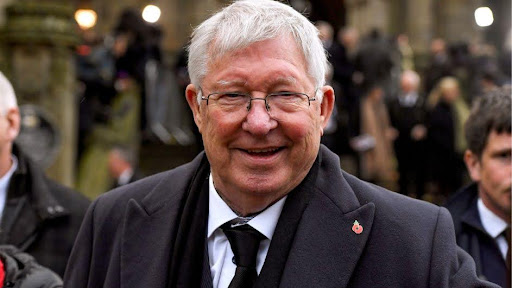
Years Active: 1974–2013
Clubs Managed: Aberdeen, Manchester United
Major Achievements:
• 13 Premier League titles
• 2 UEFA Champions League titles
• 5 FA Cups
Sir Alex Ferguson is often hailed as the greatest football manager in history. His career spanned nearly four decades, and his tenure at Manchester United remains legendary. Ferguson joined the club in 1986 when it was struggling to find consistent form, and over the next 27 years, he built one of the most successful teams in football history.
Ferguson was known for his ability to adapt his tactics to suit different eras and opponents. Early in his United career, he focused on physicality and traditional wing play, utilizing players like Eric Cantona and Ryan Giggs to exploit defenses. As football evolved, so did his strategies. In the mid-2000s, Ferguson embraced a more fluid attacking style, crafting dynamic teams featuring stars like Cristiano Ronaldo, Wayne Rooney, and Carlos Tevez.
One of Ferguson’s greatest strengths was his ability to nurture young talent. His trust in youth was epitomized by the "Class of '92," which included David Beckham, Paul Scholes, and Gary Neville. This group became the backbone of United’s dominance in the 1990s and early 2000s. Ferguson’s ability to rebuild his team repeatedly over the years ensured consistent success, a feat few managers have matched.
Ferguson was also a master motivator. His famous "hairdryer treatment" was his way of delivering harsh but inspiring talks to players when standards dropped. His leadership extended beyond the pitch, creating a culture of discipline and unity within the club. His legacy goes beyond the trophies; he shaped Manchester United into a global brand and left an indelible mark on football.
Pep Guardiola
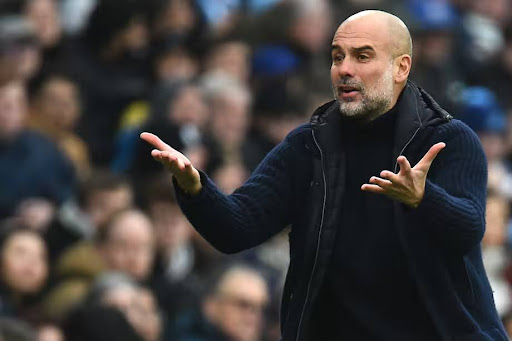
Years Active: 2008–Present
Clubs Managed: Barcelona, Bayern Munich, Manchester City
Major Achievements:
• 3 La Liga titles with Barcelona
• 2 UEFA Champions League titles
• Numerous domestic titles with Bayern Munich and Manchester City
Pep Guardiola is a name synonymous with tactical brilliance and innovation. He first rose to prominence as the manager of Barcelona, where he revolutionized football with his "tiki-taka" philosophy. This style, characterized by short, precise passing and relentless ball retention, made Barcelona nearly unbeatable. Under Guardiola, the team won two UEFA Champions League titles and three La Liga championships, with players like Lionel Messi, Xavi, and Iniesta thriving under his system.
Guardiola’s attention to detail and his ability to adapt tactics to his players' strengths have been key to his success. At Bayern Munich, he implemented a more direct approach, blending his possession-based philosophy with the physicality of German football. With Manchester City, Guardiola has created a dominant force in the English Premier League, breaking numerous records and setting new standards for attacking football.
What sets Guardiola apart is his relentless pursuit of perfection. He demands the highest standards from his players, both in training and matches. His innovative use of full-backs as auxiliary midfielders and his focus on positional play have influenced coaches worldwide. Guardiola’s success isn’t just measured in trophies but also in the evolution of modern football, as his methods have inspired a new generation of managers.
José Mourinho
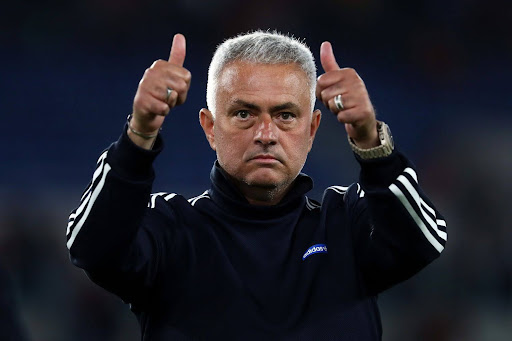
Years Active: 2000–Present
Clubs Managed: Porto, Chelsea, Inter Milan, Real Madrid, Manchester United, Tottenham Hotspur, AS Roma
Major Achievements:
• 2 UEFA Champions League titles
• 3 Premier League titles with Chelsea
• Domestic league titles in Portugal, Italy, Spain, and England
José Mourinho, famously dubbed "The Special One," is one of the most charismatic and controversial figures in football management. Known for his tactical mastery and psychological mind games, Mourinho has enjoyed immense success across multiple leagues. His journey began with Porto, where he won the UEFA Champions League in 2004, announcing himself as a top-tier manager.
Mourinho’s teams are often built on defensive solidity and counter-attacking prowess. At Chelsea, he introduced a powerful, disciplined style that made the team a dominant force in the Premier League. His ability to nullify opponents’ strengths while exploiting their weaknesses has led to numerous high-profile victories. At Inter Milan, he masterminded a treble-winning season in 2010, including an iconic Champions League triumph.
Beyond tactics, Mourinho excels in motivating players. He fosters a siege mentality, creating a sense of unity and determination within his squads. However, his confrontational style has also led to high-profile fallouts with players and club management. Despite this, Mourinho’s ability to deliver results cannot be denied. His adaptability and knack for winning trophies make him one of the most successful managers in football history.
Jürgen Klopp
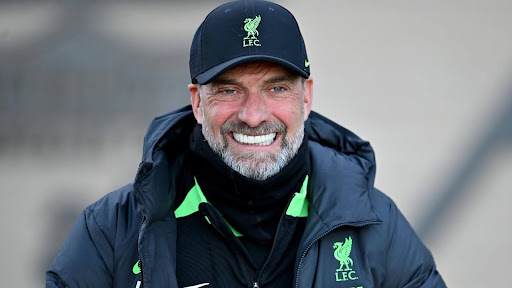
Years Active: 2001–Present
Clubs Managed: Mainz 05, Borussia Dortmund, Liverpool
Major Achievements:
• 2 Bundesliga titles with Borussia Dortmund
• 1 UEFA Champions League title with Liverpool
• 1 Premier League title with Liverpool
Jürgen Klopp is celebrated for his infectious energy and his revolutionary "gegenpressing" philosophy. Gegenpressing, which translates to "counter-pressing," involves winning the ball back immediately after losing possession, often high up the pitch. This high-intensity style has defined Klopp’s teams, making them both entertaining and effective.
Klopp first gained recognition at Borussia Dortmund, where he broke Bayern Munich’s dominance by winning two Bundesliga titles. His Dortmund side combined tactical discipline with attacking flair, with players like Marco Reus and Robert Lewandowski shining under his guidance.
At Liverpool, Klopp has transformed the club into one of the best teams in the world. He ended a 30-year wait for a league title by leading the team to the Premier League trophy in 2020. His Liverpool side also won the UEFA Champions League in 2019, showcasing resilience and tactical brilliance. Klopp’s emphasis on teamwork, relentless pressing, and fast transitions has made his teams a nightmare for opponents.
What sets Klopp apart is his charisma and connection with fans. His passion for the game and his ability to inspire both players and supporters have made him a beloved figure in football.
Carlo Ancelotti
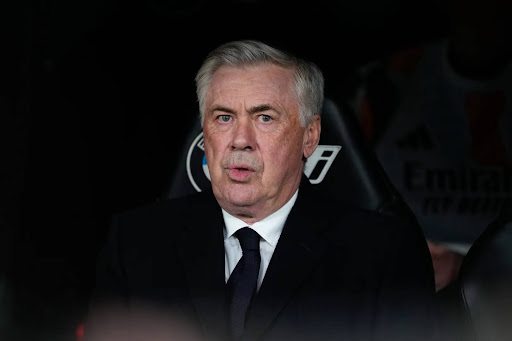
Years Active: 1995–Present
Clubs Managed: AC Milan, Chelsea, Real Madrid, Bayern Munich, PSG, Everton
Major Achievements:
• 4 UEFA Champions League titles (most by any manager)
• Domestic league titles in Italy, England, France, Germany, and Spain
Carlo Ancelotti is one of the most decorated managers in football history. Known for his calm demeanor and tactical flexibility, Ancelotti has enjoyed success at some of the biggest clubs in the world. His ability to manage egos and bring out the best in star players has been a hallmark of his career.
Ancelotti’s greatest success came with AC Milan, where he won two UEFA Champions League titles. His Milan teams were known for their balance, with defensive solidity and attacking flair. At Real Madrid, he delivered the long-awaited "La Décima," securing the club’s 10th Champions League trophy in 2014.
What makes Ancelotti unique is his adaptability. Unlike managers with a fixed playing style, he adjusts his tactics based on the strengths of his squad. His calm, composed approach has earned him respect from players and peers alike. Ancelotti’s longevity and consistent success make him a true legend of the game.
Conclusion
Football is often seen as a player’s game, but the masterminds behind the sidelines—coaches—are the true architects of success. They not only shape tactics and guide players but also define the culture and vision of their teams. Legendary figures like Sir Alex Ferguson, Pep Guardiola, José Mourinho, Jürgen Klopp, and Carlo Ancelotti have proven that great leadership and innovative strategies can leave an enduring legacy.
Each coach brought something unique to the table: Ferguson’s adaptability and focus on longevity, Guardiola’s tactical genius, Mourinho’s psychological warfare, Klopp’s high-energy pressing game, and Ancelotti’s calm, versatile approach. Together, they demonstrate that success in football is not just about winning trophies but about transforming the game itself.
As fans, we often marvel at the skills of players on the pitch, but it’s important to remember the brilliance of the minds behind them. These coaches remind us that football is as much a mental game as it is a physical one. Their stories inspire not just players and managers but also anyone who strives for greatness in their own field. Football’s greatest masterminds have proven that vision, leadership, and determination can truly change the world of sport.




